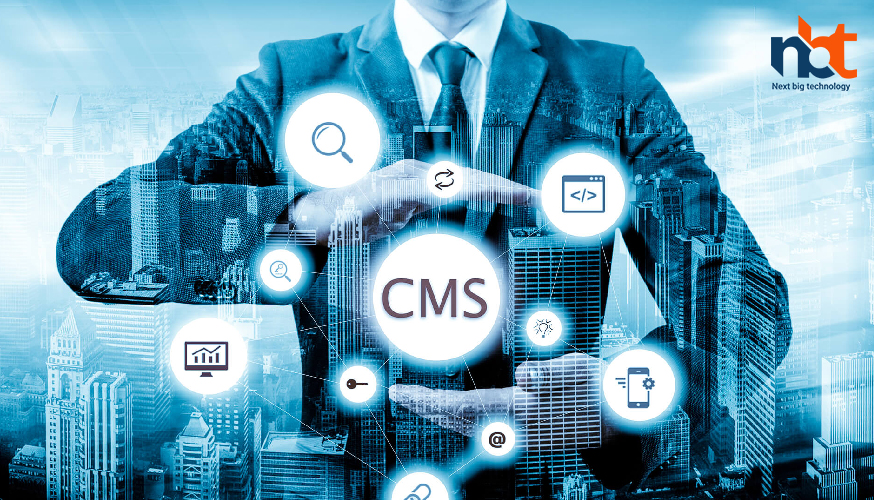Table of Contents
Introduction
Selecting the right CMS is akin to choosing the foundation for your online presence. It impacts your website’s performance, appearance, and overall user experience. Before delving into the CMS options available, let’s explore what a CMS is and the various types.
Understanding Content Management Systems (CMS)

A Content Management System (CMS) is a software application that enables users to create, manage, and modify digital content without extensive technical knowledge. It simplifies the process of website creation and maintenance, allowing you to focus on content rather than coding.
Types of CMS
Hosted CMS
Hosted CMS platforms are cloud-based, meaning your website is hosted on the provider’s servers. They are user-friendly and require minimal technical expertise. Examples include WordPress.com and Wix.
Self-hosted CMS
Self-hosted CMS gives you more control and flexibility. You host your website on your own server, which requires technical knowledge. Popular self-hosted options include WordPress.org, Joomla, and Drupal.
Popular CMS Options
WordPress
WordPress is the most popular CMS globally, known for its ease of use, extensive plugin library, and robust community support. It’s an excellent choice for bloggers, small businesses, and e-commerce sites.
Joomla
Joomla is a powerful CMS suitable for websites that require more complexity and flexibility. It’s often chosen for e-commerce and social networking websites.
Drupal
Drupal is a highly customizable CMS designed for advanced users. It excels in handling large volumes of content and is a favorite among enterprises and government organizations.
Considerations for Choosing a CMS
When selecting a CMS, consider the following factors:

Ease of Use
Choose a CMS that aligns with your technical expertise. User-friendly platforms are ideal for beginners, while experienced developers may opt for more complex options.
Scalability
Ensure the CMS can grow with your website. A scalable system allows for easy expansion as your needs evolve.
Customization
Evaluate the level of customization the CMS offers. The ability to tailor your site’s design and functionality is essential for a unique online presence.
SEO Friendliness
An SEO-friendly CMS ensures your website ranks well in search engine results, driving organic traffic.
Security
Prioritize security features to protect your website and user data from potential threats.
The Importance of Mobile Responsiveness

In an era of mobile browsing, choose a CMS that ensures your website looks and functions flawlessly on smartphones and tablets.
Content Management and Workflow
Consider how the CMS manages content creation, editing, and publishing. An efficient workflow is essential for content consistency.
Cost of Ownership

Factor in the overall cost, including hosting, themes, plugins, and ongoing maintenance, when selecting a CMS.
Community and Support
A strong community and support network can be invaluable when troubleshooting issues or seeking guidance.
Testing and User Feedback
Before finalizing your choice, conduct usability tests and gather feedback from potential users to identify any usability or functionality issues.
The Future of Your Website

Think long-term. Choose a CMS that can adapt to changing trends and technologies to keep your website relevant.
Conclusion
Selecting the right CMS is a critical step in your web development journey. Consider your specific needs, technical expertise, and future goals when making your decision. Remember that there’s no one-size-fits-all solution; the perfect CMS for you depends on your unique requirements.
FAQs
- Is WordPress the best CMS for all types of websites?
- While WordPress is versatile and suitable for many websites, it may not be the best choice for complex enterprise-level projects.
- What is the main advantage of self-hosted CMS platforms?
- Self-hosted CMS platforms provide greater control and flexibility over your website’s design and functionality.
- How can I ensure my chosen CMS is SEO-friendly?
- Look for CMS platforms that offer SEO plugins or have built-in SEO features. Additionally, follow best practices for on-page optimization.
- What security measures should I take when using a CMS?
- Keep your CMS and all plugins/themes up to date, use strong passwords, and consider implementing a firewall and security plugins.
- What role does user feedback play in CMS selection?
- User feedback helps identify potential usability issues and ensures your chosen CMS meets the needs of your target audience.
Thanks for reading our post Choosing the Right Content Management System for Web Development”. Please connect with us to know more about Management System for Web Development.










